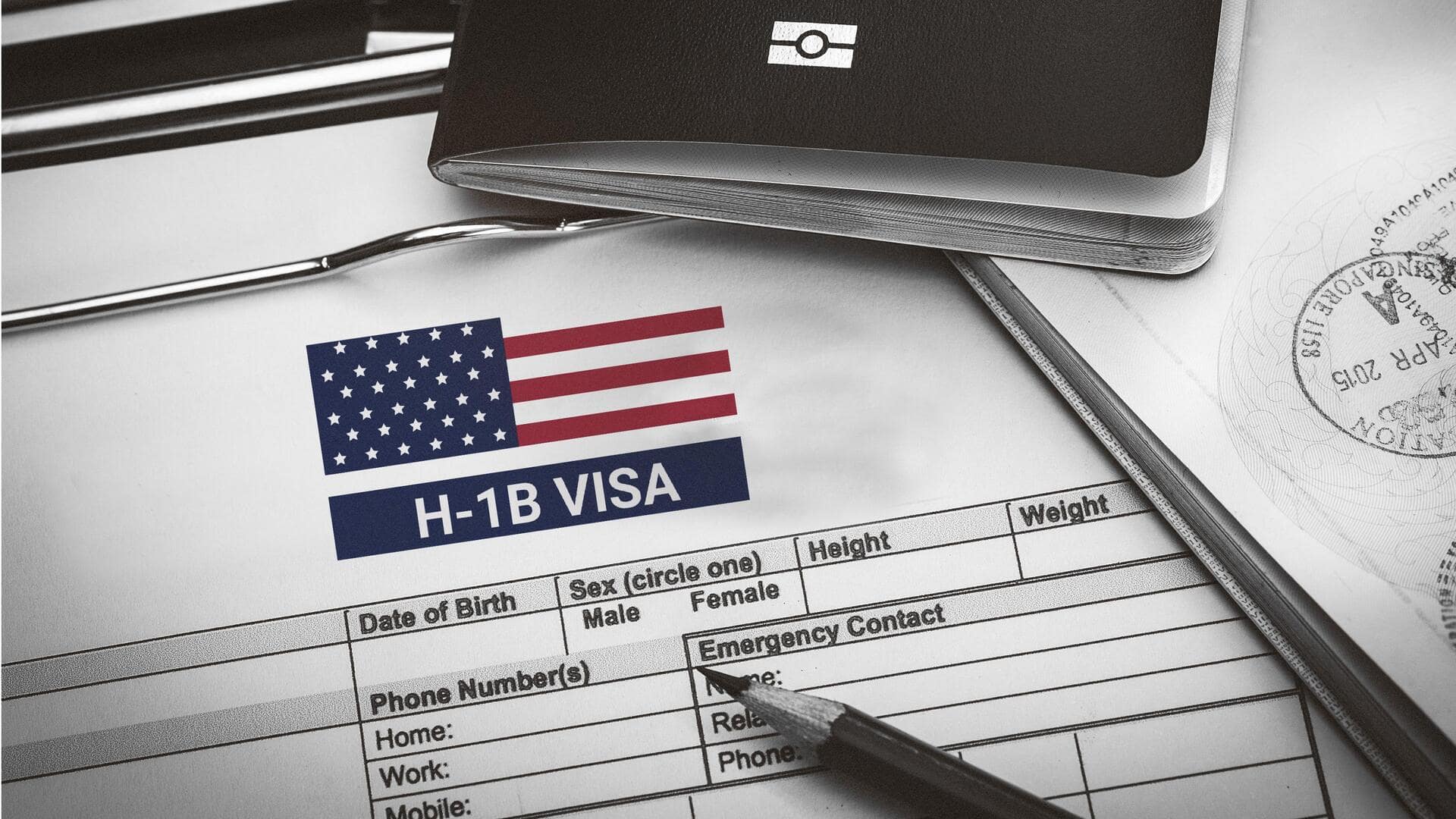
Why Indians are suing US government for denying H-1B visas
What's the story
At least 70 Indian nationals have reportedly filed a lawsuit against the United States (US) government for denying them H-1B visas.
They were punished for the fraud committed by their employers, said a lawsuit filed in Washington's federal district court.
Per Bloomberg Law, the Department of Homeland Security (DHS) denied these Indian graduates H-1B specialty occupation visas despite their subsequent employment at legitimate firms.
Details
Denied H-1B visa without chance to respond: Lawsuit
The Indian graduates—employed through Optional Practical Training (OPT)—were allegedly denied visas without a chance to respond.
They worked for four approved IT staffing companies—Andwill Technologies, AzTech Technologies LLC, Integra Technologies LLC, and WireClass Technologies LLC—found to have indulged in fraud.
In 2022, over 117,000 international candidates took part in OPT programs to start careers in the US while trying to get an H-1B visa.
Lawsuit
DHS allegedly sanctioned students as co-conspirators of 'fraud'
Recently, the DHS reportedly uncovered the fraud committed by the four companies with the government, schools, and foreign students.
However, rather than protecting the students, it sought to sanction them as "co-conspirators" who knowingly participated in fraudulent operations, the lawsuit claimed.
The attorney representing the Indian plaintiffs, Jonathan Wasden, claimed the DHS assumed students were also guilty of fraudulent misrepresentations to the US government.
Complaint
Exceeding jurisdiction by declaring students inadmissible: Complaint
The lawsuit alleged the DHS violated the Administrative Procedure Act by exceeding its jurisdiction and declaring the plaintiffs "inadmissible" without fully considering the evidence.
It further claimed the agency failed to notify the visa applicants about its action in violation of the rules.
"DHS has to go through the process of actually giving the affected parties notice and the ability to respond," said Wasden.
Plaintiff
Case of aggrieved student
While detailing a plaintiff Siddhartha Kalavala Venkata's case, the lawsuit said that he joined the IT staffing company Integra through OPT after completing a master's degree in 2016 at the New York Institute of Technology.
However, he left the company and joined another firm after Integra told students that they needed to pay for training despite promising work on projects with reputed companies.
Reaction
'It was a mistake by someone else': Plaintiff
In an interview, Venkata said, "If I made a mistake, I would accept it. It was a mistake by someone else. The US has given me a lot of opportunities that now I cannot use."
Venkata and other plaintiffs denied H-1B visas were asked to leave the country and apply for visas at US consular offices, which asked applicants to seek relief with DHS.
Facts
US to ease H-1B visa norms after PM Modi's visit
Separately, per Reuters, the US has been looking to ease H-1B visa rules for Indians after Prime Minister Narendra Modi's state visit.
It seeks to allow Indians and other foreigners on H-1B visas to renew them in the US without traveling abroad.
The pilot program would likely benefit Indians the most, who accounted for around 73% of the 4,42,000 H-1B workers in FY 2022.
About
US has 65,000 H-1B visa annual cap
Every year, the US government grants 65,000 H-1B visas to companies looking for qualified foreign employees for three years.
For employees with advanced degrees, an extra 20,000 H-1B visas are available, extendable for three more years.
Now, since the norms are eased, some foreign workers can renew their visas in the US, which would also free up resources for visa interviews at consulates abroad.